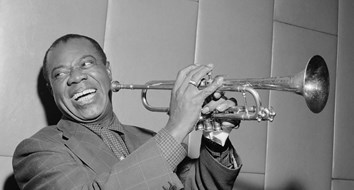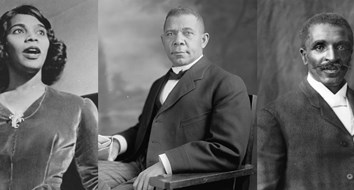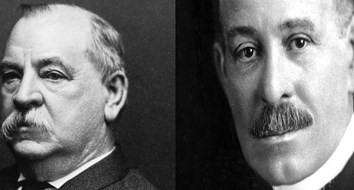Within days of last November’s elections, Newt Gingrich promised that Congress would take up the issue of a constitutional amendment to permit voluntary school prayer. That news must have hit me at an uncharacteristically irritable moment.
“Why even bring it up?” I thought. “Congress ought to focus its attention on fixing the economy by rolling back the intrusions of the central government. Besides, children have every right now to take a moment on their own and say a quiet prayer; amending the Constitution to permit anything else would open the door to subtle coercion and endless litigation. What could prayer in school accomplish that can’t be accomplished by prayer outside of school?”
That was a visceral, almost unthinking response. What I needed was a talking-to by fellow Christians, followed by a moment of silence to think the whole thing through.
Understanding the school prayer controversy is impossible without an appreciation for the endurance of Christian parents who have children in public schools. Upon reflection, I now realize that they, in general, exhibit far more tolerance than many of their secular, anti-school prayer critics.
Christian parents today feel besieged, as if they have been targeted as the one group in America that anybody can ridicule and discriminate against legally and proudly. Most of them would probably turn the other cheek were it not for the fact that when it comes to public schools, their tax dollars are helping to finance the assault.
The U.S. Circuit Court of Appeals in Cincinnati ruled that a picture of Christ hanging in a school hallway “entangles the government with religion.” In Idaho, another Appeals Court ruled that high school graduation prayers are unconstitutional even if a majority of students vote that they want to pray. In establishing the precedents on which these decisions were based, the Supreme Court earlier struck down organized prayer in the public schools (1962), recitation of the Lord’s Prayer (1963), official moments of silence (1985), and prayer at school graduation ceremonies (1992).
America’s Christian heritage—an undeniable and vitally important ingredient in this nation’s success—is being systematically expunged from classroom history texts. Even Christmas trees and Santa Claus are banned in some schools as threats to the separation of church and state. Simply allowing Christian students to meet on school grounds after hours, much as the Future Farmers of America or a homosexual group can do, had to be fought for tooth and nail all the way to the Supreme Court.
The Constitution’s guarantee of freedom of religion has become taxpayer-funded freedom from religion. Writing in the November 28 U.S. News & World Report, columnist John Leo recounts the episode of a Douglasville, Georgia senior class president who was nearly prevented from giving the traditional graduation address because school authorities feared he might say something religious in his remarks. “He presumably could have turned the occasion into a rally for Jeffrey Dahmer or called for the violent overthrow of the state of Georgia without attracting any censors,” says Leo, “but a suspected reference to God was enough to shut him up.”
While it’s deemed unconstitutional, anti-social, and even backward to cite the Bible in the classroom to make a point, it’s OK for teachers to put condoms on bananas in a sex education class, or to teach that no one person’s view of right and wrong is any better than the next person’s. Christian parents who believe otherwise are expected to keep quiet and send the kid, as well as the money the system spends to undermine what they’ve taught at home.
“But if Christians object,” public education’s apologists retort, “they can send their children to private schools.” Sure, and pay twice—once in tuition for the school they buy and again in taxes for the other product they’ve rejected.
Incidentally, though I’ve referred to Christians up to this point, there are certainly other groups I could have included. Christians are not the only people who have problems with what goes on (or doesn’t) in the public schools.
A carefully crafted constitutional amendment on this matter may be a remedy that will satisfy Christians but the question is, will it satisfy atheists or agnostics? What about others whose tax dollars pay for the schools but who don’t want even voluntary prayer being supervised on government property with government employees?
There is a larger point here than simply the fact that public schools have become intolerant to religion. That point is this: there can be no final resolution of matters of this nature, no universal satisfaction, within the context of a coercively-financed system that has captives instead of customers. When you hear the motto, “Satisfaction Guaranteed or Your Money Back,” the last thing that comes to mind is a government program.
In free markets where individual choice prevails, conflict is minimized. You get what you pay for and you pay for what you get. If you don’t like the wares in one store, there’s no need to throw up a picket line. You don’t have to attend lengthy and boring meetings and be talked down to by public “servants.” You don’t have to wait until the next election and hope that 50 percent plus one of those who vote will vote the way you’d like them to. You simply shop elsewhere. End of discussion.
Here’s how Walter Block explained the problem in his chapter, “We Ought to Have Sex Education in the Schools,” in FEE’s 1994 book, Clichés of Politics:
Instead of considering the proposition “We ought to have sex education in the schools,” let us contemplate “We ought to have pizza in the restaurants.”
Were this question solved in the manner presently used for sex education, our system would be very different. Most restaurants would be run by the government. All citizens would be forced to pay for these public restaurants, whether they used them or not. Those who patronized private ones would have to pay twice: once in fees for meals, and then again through taxes. People, moreover, would be assigned to the public restaurant located nearest to them.
As to the pizza question, all public restaurants would either stock this foodstuff, or they would not. There could be no such thing as restaurants specializing in different cuisines, and people sorting themselves out according to their tastes. Thus, either the pizza lovers, or the pizza haters, would be disappointed.
Controversies like prayer, or sex education in the schools will not end until concerned parents can freely opt for private alternatives without being forced to pay for public systems that assault their beliefs and values. Those who believe that a constitutional amendment allowing voluntary school prayer will solve problems should understand that it would solve some problems, create others, and leave the fundamental dilemma unchanged.
A free market in education is the real answer to prayer.





